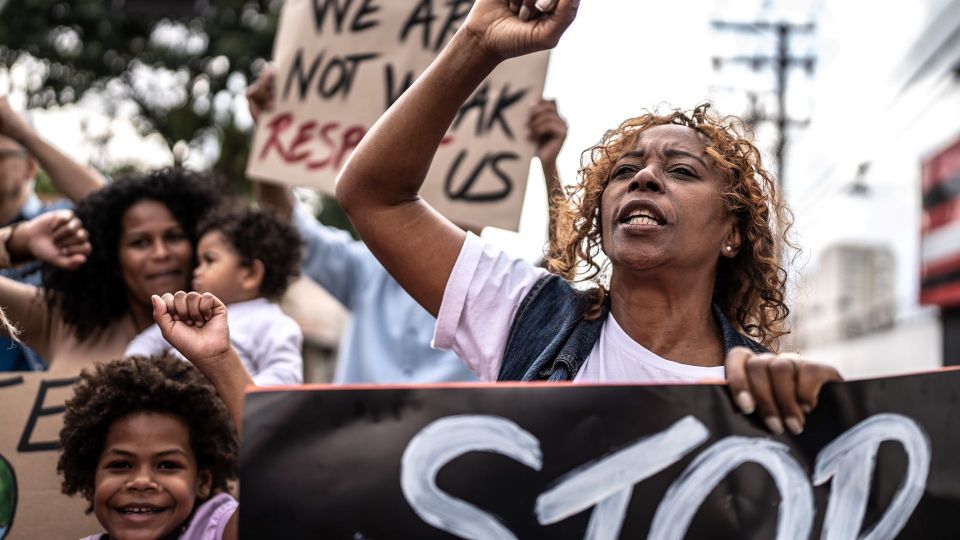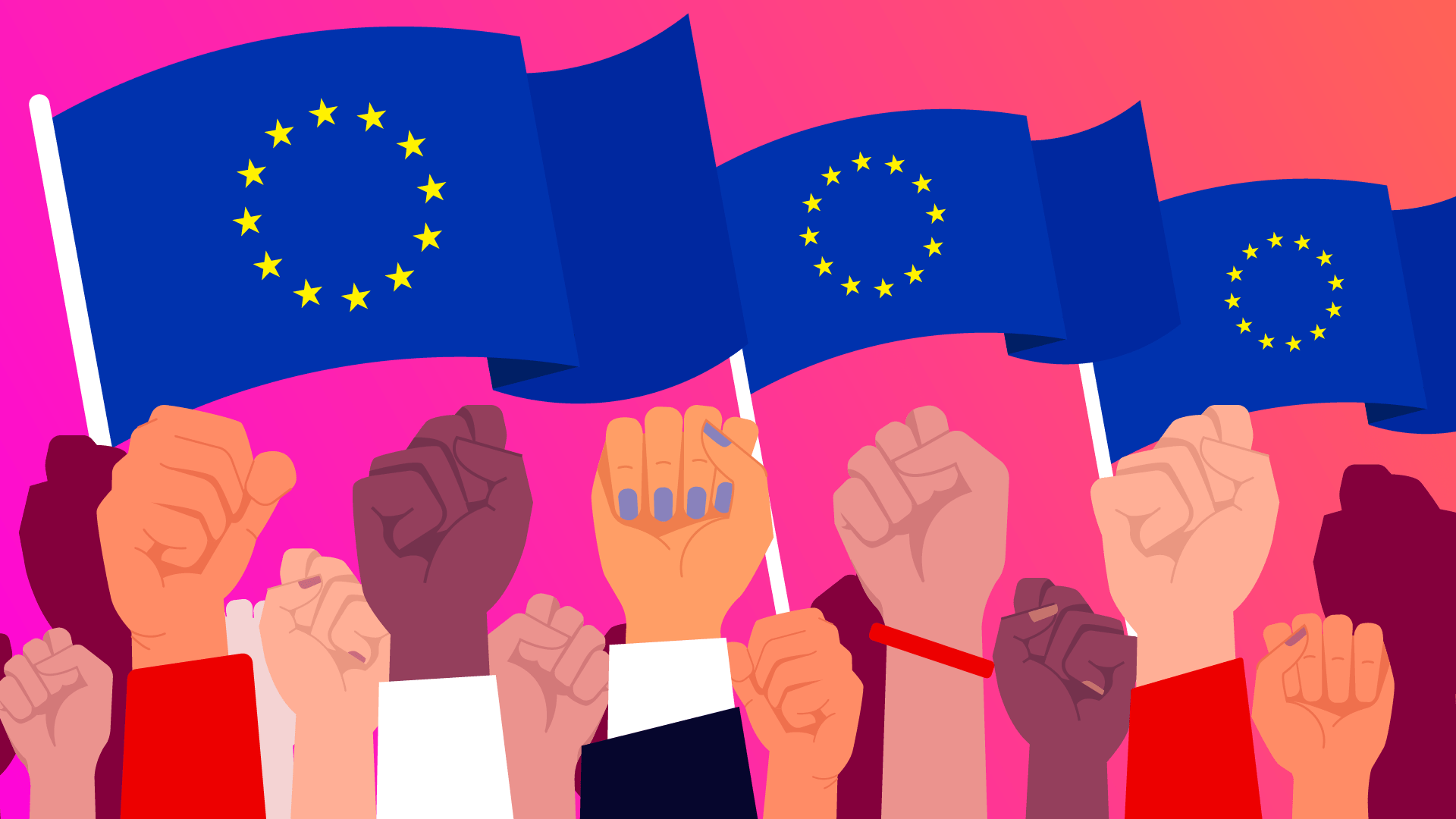
We have been strongly fighting to approve legislation with binding rules for companies to prevent human rights abuses and get justice for victims, as well as tackle forced labour worldwide. Special emphasis was given to the situation of the Uyghurs in China.
Since the adoption of Agenda 2030, the S&D Group has been in the driving seat for the promotion of the Sustainable Development Goals (SDGs) putting them up high on the political agenda. S&D members have been advocating for the SDGs at United Nations events such as the High-Level Political Forum (UN), the SDG Summits as well as the S&D mission to the United Nations headquarters in New York in June 2022.
2023 has been a pivotal year as the EU presented its first review report on the delivery and progress of the SDGs. Thanks to our efforts, the European Parliament approved the strategic report on the implementation and delivery of the SDGs in June 2023, ensuring the EP official position ahead of the UN high-level events.
Our main achievements were successfully adopted and reflected in the final text of the report including our big commitment to fighting inequality and poverty inside the EU and elsewhere in the world. We also reiterated our call for the establishment and the adoption by the Commission of a comprehensive EU strategy for the achievement of Agenda 2030. In complete contrast with the right wing, we have strengthened social Europe throughout the strategic report. In addition, we included strong references to addressing unsustainable debt burdens and the need to increase SDG investment capacity without creating additional debt for the poorest countries.
Another big victory consists in the incorporation of our request for greater transparency and accountability of the private sector regarding the social and environmental impact of companies and their contribution to the achievement of the SDGs.
The Covid-19 crisis disrupted the whole world and the most vulnerable paid the highest price. The S&D Group was at the frontline in the fight for favour vaccine production and access for the poorest countries, where pre-existing weak infrastructure and health care services had put them in an even more unequal position compared to the developed nations. Following our strong demands, the EU Commission published in November 2022 an EU Global Health Strategy which seeked to reach the fulfilment of the universal health-related targets in the 2030 Sustainable Development Goals. Following our initiatives, the Commission set up an Inequality Marker in the summer of 2023. In October 2023 our group, together with the Commissioner Urpilainen, organised a seminar on the Inequality Marker, inviting high-level speakers and experts, including civil society representatives. The Inequality Marker (I-Marker) is a concrete and innovative tool that will enable the EU to better understand, track and benchmark its impact across all sectors on inequalities and it will help in bridging the gap between the poor and the rich.
Despite the opposition of right-wing Hungarian and Polish governments, we have been able to approve the new 'Samoa agreement', replacing the outdated Post-Cotonou Agreement, so as to strengthen binding commitments on human rights and promote parliamentary scrutiny of joint EU-Africa activities. We have also shaped the EU-Africa strategy against the background of a worldwide pandemic, which required flexibility and international solidarity.
We pushed for the deepening of links through trade and investment and for the provision of new opportunities, in particular for young people both in Europe and Africa. We notably pushed for greater possibilities for youth and entrepreneurs to access new markets.
With regard to trade investment and development cooperation, we have fought to ensure the EU’s new approach to sustainable development and climate commitments through the Green Deal are at the heart of all our agreements with Africa. We have pushed to better and more fairly integrate African economies into global value chains, provide greater emphasis on African added value, in particular through greater EU efforts on binding due diligence.
In doing so we not only provide a tool to promote decent work, but also increase the general security situation in many Sub Saharan countries. This includes the responsible sourcing of critical raw materials with the prior and informed consent of local communities.
EU foreign policy needs to promote democracy, the rule of law, the universality and indivisibility of human rights and fundamental freedoms, respect for human dignity, the principles of equality and solidarity, and respect for the principles of the United Nations Charter and international law. The Sakharov Prize awarded each year by the European Parliament to human rights defenders worldwide reflects this view.
The S&D Group insists on this principle: Promotion of human rights must come first, not just when it is convenient or easy. We do not refrain from raising abuses even in the most powerful countries or those in our neighborhood. The EU’s policies on human rights should therefore lead to more assertive, decisive and effective actions.
For S&Ds, it is of a high importance that the EU and member states' policies avoid negative spill over effects at the expense of countries in the Global South which are the most vulnerable. We also want to ensure that all EU policies should be subjected to a mandatory SDGs check to better understand and address any negative effects.
The S&D Group believes our equal partnership with Africa is crucial to face global challenges together. We are the only group in the EP to establish a continual, high-level dialogue with African decision makers, civil society and a diverse range of representatives through our 'S&D Africa Week' event and our work on the EU-African-Caribbean-Pacific countries Joint Parliamentary Assembly. The final goal is tackling joint challenges despite the rising of geopolitical tensions.
For S&Ds, it is also of utmost importance to support the development of an efficient and ecologically sustainable agricultural sector in African countries allowing a high level of self-sufficiency and increasing food security in times of great adversity.
We have constantly championed European Parliament resolutions defending democracy and common fights against foreign interference and efforts to bring about stability.
The S&D Group has developed both a multi- and bilateral approach to Latin America, and some of its key countries, over years of delegations and meetings with sister and other progressive parties in the framework of the regular S&D Latin America days or in the margins of the Eurolat Joint Parliamentary Assemblies. The potential for a better and deeper relationship with Latin America is enormous and goes well beyond trade. Our group wants to create tools to protect democracy and the rule of law, to resist authoritarianism, to fight climate change, to promote the digital transition and tackle inequalities with socio-economic opportunities for the more vulnerable groups, as well as promote gender equality and women's rights. One of the tools we are using is that of tabling resolutions during the plenaries of the European Parliament. We have tabled strong resolutions on Brazil, Cuba, Nicaragua, Guatemala and Venezuela to make the voice of the European Parliament loud and clear.

